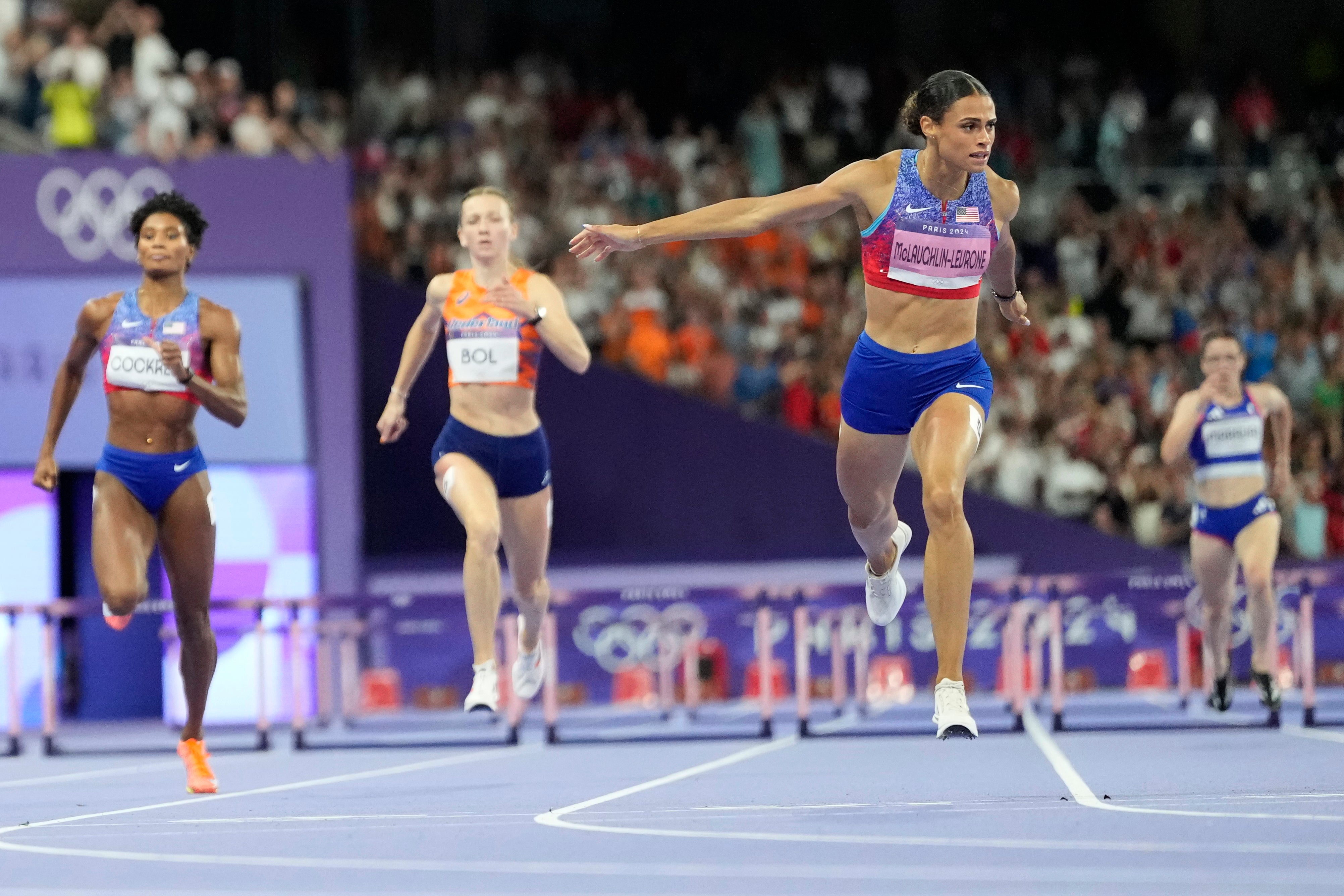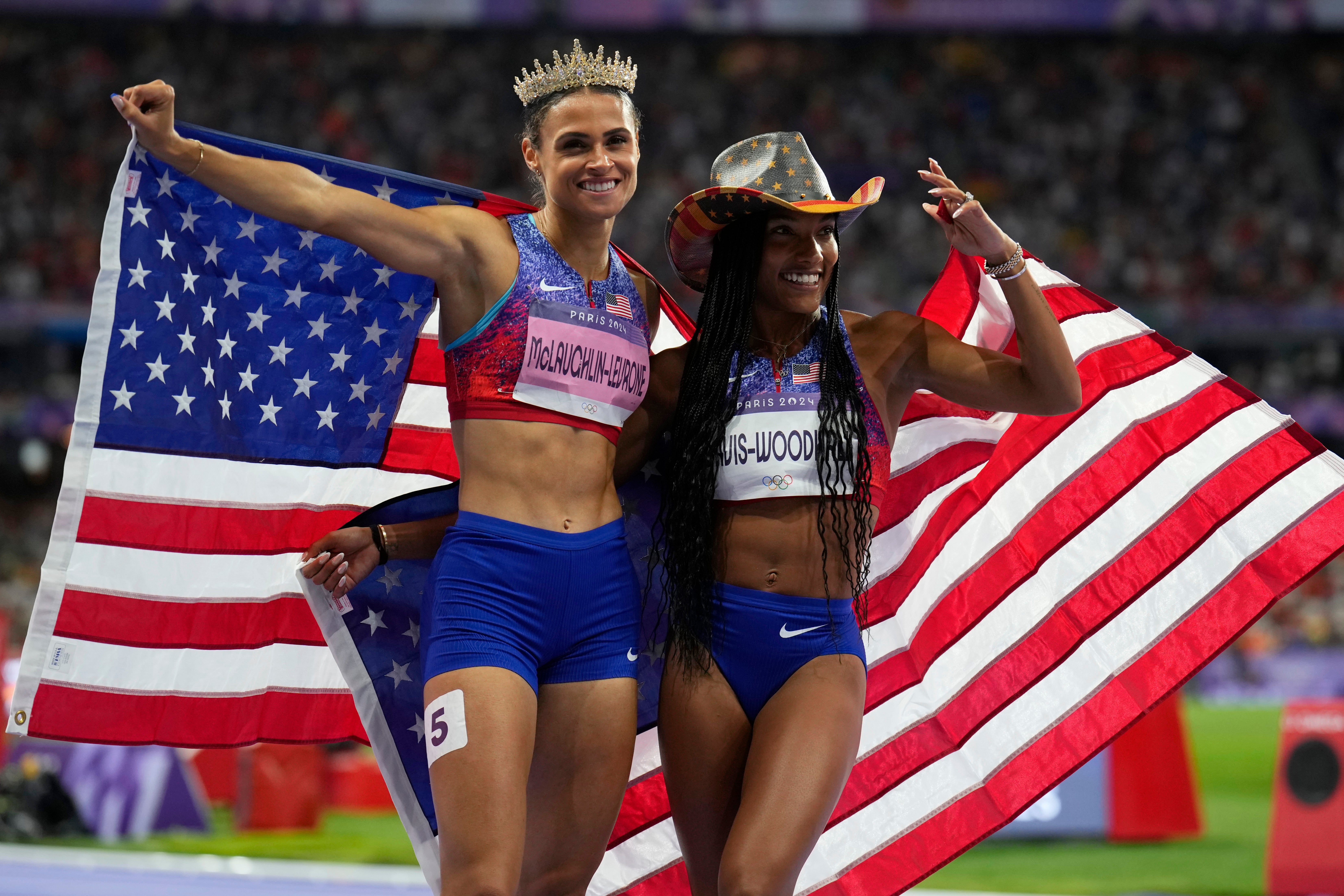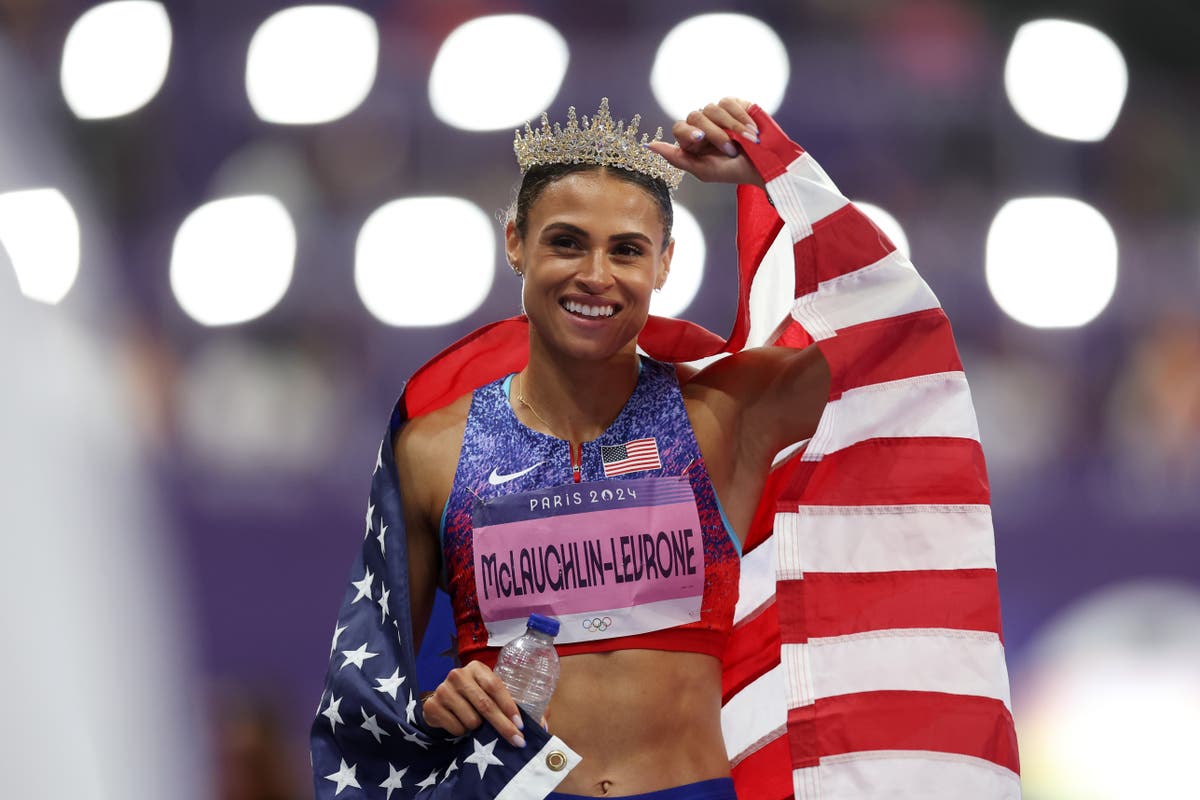There will probably come a point when Sydney McLaughlin-Levrone reaches the limits of humanity in the women’s 400-meter hurdles and stops rewriting the laws of physics. But not here, not yet. In front of an enthusiastic crowd at the Stade de France in Paris, she broke another world record with a stunning defense of her Olympic title.
The race was billed as a showdown between McLaughlin-Levrone and her Dutch rival Femke Bol, the only two women in history to break the 51-second barrier. But the American was on a completely different level, winning gold in 50.37 seconds, well ahead of the others.
That time was almost three-tenths of a second off the record she set at the US Trials in June. Few athletes have ever performed as brilliantly as McLaughlin-Levrone, who has now run the fastest time ever in her last six major championship finals.
Behind her, Bol had to settle for bronze in 52.15 seconds after being beaten on the home straight by Anna Cockrell of the USA, who took silver in 51.87 seconds.
There are some staggering statistics behind McLaughlin-Levrone’s run. Compare that to the women’s 400m – a flat race without hurdles – which culminates in the Olympic final on Friday night. There were 24 semifinalists and had McLaughlin-Levrone run with them in the world record 10-obstacle race, she would have been ninth fastest and just missed out on a place in the final.
She had signed up for the U.S. qualifiers in the 200 and 400 meters in June, but canceled both when she realized how busy her schedule would be in Paris. Instead, she focused on the 400-meter hurdles – “my first love” – and defending the Olympic title she won in Tokyo. She did that by moving to a completely new time zone.

“I am grateful and thankful to God for this opportunity to celebrate my birthday in this way,” said McLaughlin-Levrone, who turned 25 on Wednesday.
“In every race you fight against 10 hurdles. There are people who push you, but that’s no use if you don’t focus on the obstacles in front of you. That’s what I focused on, I tried to complete my 10 hurdles as efficiently as possible and improve my time each time.”
How does she manage to keep finding new ways to get faster?
“There are so many ways to run it, there are so many different ways to get better. Between stride pattern, touchdown time, flat speed – you’re always trying to improve those things. There’s no such thing as a perfect race, but the closer we get to 49 seconds, the more I feel like we’re slowly getting closer.
“I have to go back and watch the race. It’s also about improving the performance of your legs so you can go so fast for so long.”
Despite her success, the race still carried a certain mystery. McLaughlin-Levrone had only faced Bol twice before and had not faced him at all for over two years.
She ran a world record of 50.65 seconds in the heats to secure her place in Paris, but Femke Bol countered with 50.95 seconds at a pre-Games meet in Switzerland and the seeds of rivalry were sown.
The Dutch fans were convinced. The Stade de France was full of orange banners and the cheers when Bol arrived let them know they were there.
Bol got off to a good start and there was little difference between the favourites on the back straight. But there McLaughlin-Levrone found his rhythm, looked perfectly balanced and took each hurdle as a minor inconvenience rather than a 76cm barrier.
Bol slowed down and expressed frustration afterward with her time, which was more than a second off her sub-51 time from last month.
“In an Olympic final, you just want to do your best race,” she said. “I messed up. I don’t know where I made the mistake. With 300m to go, I just got so much lactic acid. I don’t know why, I really have no explanation. This is just a bad race. I’ll look at the positives and talk to my coach. I’ll try to enjoy the bronze medal.”

Cockrell benefited from Bol’s lackluster race, although she gave most of the credit to Beyoncé.
“I’m just overwhelmed, I’m overwhelmed,” said the 26-year-old from California. “There’s not much you can say when you have a personal best and win a medal. It all came together in the best possible way. My coach just told me to have fun, be myself, go out there and be Beyoncé.”
“I sang Love at the top in the callroom, so shout out to Beyonce. I’m really happy. I’m crying ugly, but I’m really happy.”
As she crossed the finish line, McLaughlin-Levrone was already celebrating. What else can she achieve? The 400m is a goal and it’s not hard to imagine her attempting both events in Los Angeles in four years.
Perhaps there was a hint of her next trick in the replays of that victory. She dived five metres too early and was already back upright by the time she crossed the finish line. McLaughlin-Levrone left time on the road, and that means the 50-second mark is not a sure thing.
“I didn’t look at the clock,” she said. “When I crossed the finish line, I was grateful. I had hoped to go a little faster.”


